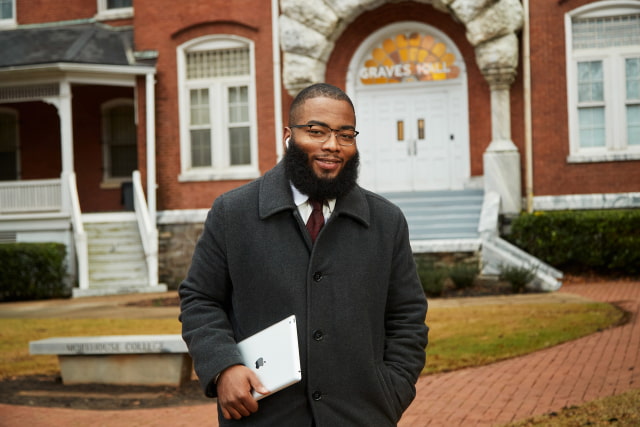Apple Announces New Projects as Part of Its $100 million Racial Equity and Justice Initiative (REJI)

Apple has announced a set of new projects as part of its $100 million Racial Equity and Justice Initiative (REJI).
These forward-looking and comprehensive efforts include the Propel Center, a first-of-its-kind global innovation and learning hub for Historically Black Colleges and Universities (HBCUs); an Apple Developer Academy to support coding and tech education for students in Detroit; and venture capital funding for Black and Brown entrepreneurs. Together, Apple’s REJI commitments aim to expand opportunities for communities of color across the country and to help build the next generation of diverse leaders.
“We are all accountable to the urgent work of building a more just, more equitable world — and these new projects send a clear signal of Apple’s enduring commitment,” said Tim Cook, Apple’s CEO. “We’re launching REJI’s latest initiatives with partners across a broad range of industries and backgrounds — from students to teachers, developers to entrepreneurs, and community organizers to justice advocates — working together to empower communities that have borne the brunt of racism and discrimination for far too long. We are honored to help bring this vision to bear, and to match our words and actions to the values of equity and inclusion we have always prized at Apple.”
Apple is working with Southern Company and a range of community stakeholders to support the launch of the Propel Center, a first-of-its-kind innovation and learning hub for the HBCU community. Apple’s $25 million contribution will enable the Propel Center to support HBCU students and faculty through a robust virtual platform, a physical campus in the historic Atlanta University Center, as well as on-campus activations at partner institutions.
As part of Apple’s ongoing partnerships with HBCUs, the company is also establishing two new grants to support HBCU engineering programs. Apple’s new Innovation Grants will help HBCU Colleges of Engineering develop their silicon and hardware engineering curriculum in partnership with Apple’s experts. The new Faculty Fellows Program will support HBCU educators pursuing R&D with mentorship programs, curriculum development assistance, and funds to equip their lab spaces.
Building on its longstanding scholarship program with the Thurgood Marshall College Fund, Apple is also now offering scholarships to 100 new Apple Scholars from underrepresented communities. In addition to financial support, the Apple Scholars program includes mentorship and career development experience at Apple.
Later this year, Apple will open an Apple Developer Academy in Detroit — the first of its kind in the US. Detroit has a vibrant Black entrepreneur and developer community, with over 50,000 Black-owned businesses, according to US Census data. The academy is designed to empower young Black entrepreneurs, creators, and coders, helping them cultivate the skills necessary for jobs in the rapidly growing iOS app economy. Launched in collaboration with Michigan State University, Apple Developer Academy courses will be open to all learners across Detroit, regardless of their academic background or whether they have any previous coding experience.
Apple says it will invest $10 million with Harlem Capital — an early-stage venture capital firm based in New York — to support its investments in 1,000 companies with diverse founders over the next 20 years. The company will also invest $25 million in Siebert Williams Shank’s Clear Vision Impact Fund, which provides capital to small and medium-size businesses, with an emphasis on minority-owned companies.
Finally, Apple is making a contribution to The King Center, a living memorial to the legacy of Dr. Martin Luther King Jr. to share his teachings and inspire new generations to carry forward his unfinished work.
Source link







